Late Bishops
LATE BISHOPS
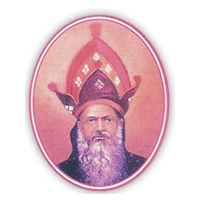
His Grace the Most Rev Mathews Mar Athanasius Metropolitan (1843 - 1877)
It took some time before Mar Athanasius could establish himself as the Metropolitan of the church. One of the factors which helped him to attain this position was an order from the government of Travancore (1852) giving him recognition as the Metropolitan. As head of the church he worked hard for the education of the clergy and for raising the moral standards of the people. He was also able to remove various social disabilities of the people. For understandable reasons in the early years of his episcopate he did not identify himself too closely with the movement for reform. But having established his position, there was no doubt as to where his sympathies lay. From the beginning there was opposition against him from those who feared that he would be in favour of the reform programme. The opposition became gradually strong and succeeded in enlisting the support of the Patriarch on its side. The opponents of Mathews Mar Athanasius had sent complaints about him to the Patriarch, who without a judicial enquiry appointed Pulikottil Joseph Mar Dionysius to supercede Mathews Mar Athanasius as Metropolitan. As a result of this struggle for power the church tended to be divided into two sections, one favouring reform and the other opposed to it. Thomas Mar Athanasius, son of Abraham Malpan was consecrated by Mathews Mar Athanasius as his successor in 1869. Mathews Mar Athanasius is generally considered one of the ablest Metropolitans of the Syrian Church. At this difficult time the support of leaders from the clergy and the laity who had been inspired by the spirit of the reform movement was a source of great strength to the position taken up by their bishops.
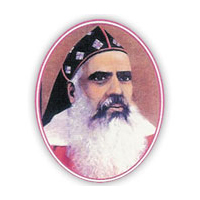
His Grace the Most Rev Thomas Mar Athanasius Metropolitan (1868 - 1893)
Mathews Mar Athanasius consecrated Thomas Mar Athanasius of Palakkunnathu Family, son of Abraham Malpan as his successor in 1869. In 1876 there was held a synod at Mulamthuruthi presided over by the Patriarch of Antioch, Moran Mar Pathros who was on a visit to Malabar. This helped to tighten his hold over the Syrian Church in temporal as well as in spiritual affairs. Mathews Mar Athanasius Metropolitan and his followers inspired by the reformation were of course opposed to this policy. Thomas Mar Athanasius Metropolitan as the leader of the reformed section of the Church followed in the footsteps of his predecessor and eventually he was involved in a litigation, lasting for over 10 years regarding his title to the possession of the ‘Syrian Seminary’ and allied properties of the Church. In the court of final appeal two Hindu judges decided in favour of Joseph Mar Dionyasius as representing the Patriarch, but the English judge, Mr Justice Ormsby dissented from their findings.
The contention of Mar Dionysius who represented the unreformed Jacobite Church was that the consecration of Thomas Mar Athanasius was invalid as it had been done without the permission of the Jacobite patriarch, held to be the supreme head of the Syrian Church in Malabar. The plea of Thomas Mar Athanasius was that the Syrian Church in Malabar was an independent church though having friendly relation with the Jacobite Patriarch and that therefore, there was nothing wrong in his having been consecrated by his predecessor without any reference to the Patriarch. The majority judgement held that the Syrian Church in Malabar was under the jurisdiction of the Jacobite Patriarch. Thus the cause of the independence of the Syrian Church sustained a blow for the moment. This was a temporary setback as later history showed, for the independence of the Syrian Church has now come to be accepted as a valid principle by the Orthodox Church (The earlier unreformed later took up the name Orthodox) as well. The result of the judgement in the ‘Seminary Suit’, as it is sometimes known, was that the Church was divided into two sections one, calling the Jacobite Church and the other the Mar Thoma Church. The Mar Thomites having lost their claim to property had to start from scratch, building churches and organizing themselves as an independent body. This was no easy task. The earnestness and spiritual fervor of the leaders, lay and clerical, stood them in good stead. Their evangelistic zeal found expression at this time in the formation of the Mar Thoma Evangelistic Association in 1888. Though the episcopate of Thomas Mar Athanasius was a period of trial and suffering for the church it was also one of great spiritual promise for the future. The Mar Thoma Church considers itself as one carrying on the original traditions of the Malabar Church, reformed in accordance with the teaching of the New Testament.
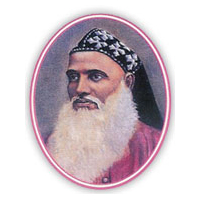
His Grace the Most Rev Titus I Mar Thoma Metropolitan (1893 - 1910)
Titus I Mar Thoma escaped death narrowly on two occasions. The first instance was when the church building collapsed when he was resting in the Maramon church. The other was when the roof of the room in which he was sleeping was set on fire by some miscreants. The Metropolitan could coolly face adversities since he had deep faith in god. HE had the support of faithful and dedicated friends among the clergy and laity.One of the most important of them was Vicar General Ipe Thoma Cathanar, an outstanding personality with a record of distinguished service to the Church and the State. The constitutions of the Mar Thoma Church was drawn up on democratic principles, retaining the Episcopal tradition during his regime. The official publication of the Church called Malankara Sabha Tharaka (Star of the Malanakara Church) was launched under the editorship of Mr. K.N. Daniel who was an able exponent of reformation principles. Titus I was a Saintly Bishop noted for his deep devotion, intimate fellowship with God and love towards all people. He passed away in 1910.
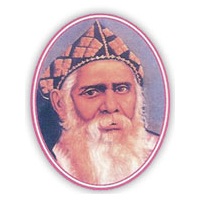
His Grace the Most Rev Titus II Mar Thoma Metropolitan (1898 - 1944)
He was nephew of Titus I Metropolitan and was consecrated by him in 1899, assisted by Metropolitan Mar Koorilos of Thozhiyoore. He worked with Titus I as his Suffragan Metropolitan, and became Metropolitan in 1910. He worked vigorously for the building up of the Church. In those days when it was difficult to travel, he visited Churches in out-of-the-way locations and organized the Parishes on organizational lines. He took measures to ensure that the Parish officials maintained the Parish account up-to-date;and he fostered various programmes of the Parishes. The Mar Thoma Sevika Sangam was organized in 1919 and the Voluntary Evangelists Association in 1925. The Mar Thoma Theological Seminary for the training of the Clergy was established at Kottayam in 1926. Bishop Abraham Mar Thoma was consecrated as Suffragan Metropolitan in 1917 and the two Bishops worked together tirelessly for the growth of the Church. Titus II Mar Thoma passed away in 1943 after being Metropolitan for 33 years.
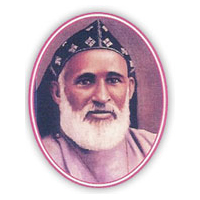
His Grace the Most Rev Dr Abraham Mar Thoma Metropolitan (1917 - 1947)
Abraham MarThoma was known all over India for his burning passion for evangelism, for his zeal for spreading the Gospel through the length and breadth of India. He received theological training in India and Canada. It was during this time that the Mar Thoma Church became well known in the Western World. He was consecrated Bishop in the year 1917 and he worked relentlessly as Suffragan Metropolitan for the spiritual strengthening of the Church and for its witness. He was installed Metropolitan in 1944 when Titus II Metropolitan passed away. He was born in an illustrious Orthodox family but his father passed away when he was very young and he was brought up in his mother’s house at Eraviperoor, a home which cherished the blessings of the reformation. Thus from his early days he was inspired by evangelistic activities. Even as a student in High School at Kottayam and in Madras Christain College, he was a spiritual leader among his fellow-students. He strongly believed that evangelism was the responsibility of every member of the Church and not of the clergy alone. He emphasized that every man and woman was called to be witness of Jesus Christ, irrespective of his/her secular occupation. It was this conviction that led him to organize groups of men and to give them specialised training in personal evangelism. Thus the Voluntary Evangelists Association was established in 1924 as a voluntary lay movement of the Church. The women of the Church also were encouraged to take their part in fulfilling the mission of the Church. He encouraged the formation of the Mar Thoma Suvisesha Sevika Sangam, which is the women’s auxiliary of the evangelistic work in the Church.
One of the greatest aims was to find proper individuals for both the ordained ministry of the Church and for lay activities. It was through his influence that many educated people came forward to join the ministry of the church, when they could find lucrative employment elsewhere. After finding out suitable young men, he arranged for their higher education and theological studies. He organized special summer schools for ordinary people engaged in secular jobs for Bible study and training. The Vanithamandiram, for training women workers also was developed with his active encouragement. The call that he gave to young men and women to go and live in the villages of India in different language areas resulted in establishment of Ashrams in Madhya Pradesh, Karnataka and in places till the borders of Tibet. His help was sought by Christian friends all over India to lead evangelistic conventions. Such assignments took him from Kanyakumari in the south to Kashmir in the north. He was a friend of missionaries in India and all of them looked up to him for inspiration and guidance. The Tiruppathur Ashram and the Kodaikanal Asharm established by members of other Churches, regarded him as their friend, guide and philosopher. He was president of the Mar Thoma Evangelistic Association and the National Missioanry Society. Even though he was suffering from acute diabetes for many years, he went on working with the motto: “it is far better to burn out than to rust out”. The Abraham Mar Thoma Bible institute established for the training of voluntary evangelists in the Church was named after him. Though he was Metropolitan only for four years, his long ministry as Bishop strengthened the Church in all its missionary enterprises. He was called to eternal home in 1947.
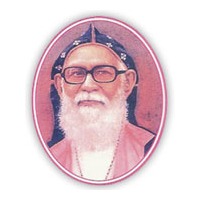
His Grace the Most Rev Dr Juhanon Mar Thoma Metropolitan (1937 - 1976)
Church saw remarkable growth during the long Episcopal Ministry of Metropolitans Titus II and Abraham Mar Thoma. Many new church buildings came up in different places. Parishes became well organized. The whole region in Kerala was divided into administrative divisions under the charge of Divisional Secretaries. The need for consecrating more Bishops was keenly felt and Rev. C.M John and Rev. C.T Mathew were selected. They were consecrated Bishops of the Church in 1937 with names Juhanon Mar Timotheos and Mathews Mar Athanasius. This was the first time in the Mar Thoma Church when two Bishops were consecrated together. They were given charge of two dioceses. On the expiry of Abraham Mar Thoma Metropolitan in 1947, Juhanon Mar Timotheos was installed as Metropolitan of the Mar Thoma Church, with the title Juhanon Mar Thoma Metropolitan. Juhanon Mar Thoma had his theological education at the United Theological College, Bangalore, and the Union Theological Seminary, New York. He taught in The Mar Thoma Theological Seminary, Kottayam before he was consecrated as Bishop. He was reputed for his deep concern for social justice derived from the study of the message of the prophets and of the message of the kingdom of God proclaimed by Jesus. During the days of revival in the Church, emphasis was primarily on individual relationship to God and personal holiness. With the new understanding of the message of the Kingdom of god, there came an awareness of the wider implications of the Gospel, and a deep social consciousness. The gospel of liberation proclaimed in the Nazareth manifesto made its impact on the life of the Church. The national struggle under the leadership of Mahatma Gandhi for freedom from English rule was at its peak. Juhanon Mar Thoma made no secret of his identification with the national aspirations and he encouraged those who took part in the political and social struggles. While being deeply committed to the principle of reformation, his friendship and affection crossed all denominational barriers. Ecumenism was a reality with him and he appreciated the good points in other Churches and also in other religions. Therefore he was looked up to with respect and admiration by Christians belonging to other denominations and people of other faiths. His advice was sought in social and political concerns as well as in spiritual matters. He actively participated in the ecumenical movement from its very inception in the first Assembly of World Council of churches at Amsterdam in 1948. In the second Assembly at Evanson in 1954, he was elected as one of the Presidents of the World Council of Churches and was in the presidium when the Third Assembly met at new Delhi in 1961. Thus he rose to great eminence in ecclesiastical and national spheres. It was during his regime that full communion relationship was established with C.S.I and C.N.I. He had strong convictions and he was fearless. When the national emergency was clamped on the country, the Metropolitan saw that the country was in danger of losing its hard-won freedom. He was the only Church leader in India who took courage to write a personal letter to the then Prime Minister Indira Gandhi asking to lift the Emergency in the interest of the Indian democracy. Thus he faced the risk of being placed under arrest. Before long, emergency was lifted and nobody is sure as to how much his letter weighed with the authorities in deciding the issue. He made his mark as an educationist too. Four institutions of higher education in the Mar Thoma Church (The Mar Thoma College, Tiruvalla, St. Thomas College, Kozhenchery, Christian College, Chengannur, and Titus II College Tiruvalla) were started under his leadership. They have grown in a marvelous way and have become first grade College. Even when facing tremendous strain to raise funds for development of the institutions, he adhered to the principle that no money should be collected as donation or capitation fee for appointing teachers or giving admission to students. Technical institutions also were started to give job-oriented training to young people to help them find employment.
His concern for the poor and the needy in the society found expression in action. He started the project to provide land for the landless and house for the houseless, even before Vinoba Bhave undertook it on national scale. He appealed to the people and many came forward in response to the call. When a new house (Bishop’s residence) was constructed for him and also to provide accommodation for guests, he wanted to build a house for a poor man preferably any one from other faiths before he started living in the new house. This was done and the key of the house was handed over to a Hindu friend simultaneously with the dedication of the house for the Metropolitan. The project of the Church for providing at least 100 houses per year to the poor irrespective of their religion and caste was started on that occasion. It has been achieving more than its aim in the past 18 years. The Government of Kerala followed this example and started a scheme to build one lakh houses with Government resources. Thus Juhanon Mar Thoma was pioneer in this social programme. Individual Parishes and members of the Church also have followed this good example and many thousands of houses have been constructed for the poor. Considering the housing situation of Kerala, this is just a beginning and there are many more lakhs of people in need of shelters. The Metropolitan appealed also for funds to help people in distress owing to accidents and natural calamities. This fund was called the Relief Fund, which is to be raised by practicing abstinence by skipping a meal a day to feel the suffering of others. Many responded to this appeal following his personal example, and have contributed to the fund, which has helped thousands. Another appeal was to contribute money to help in the marriage of poor girls. This contribution is usually given by people on the wedding of their children as an offering to God for providing for their needs. He also requested people to curtail their personal expenses as much as possible and to lead a simple lifestyle, contributing liberally towards the upliftment of the poor. He himself led a very simple life almost ascetic in nature, and was an idealist of high thinking and simple living. It can be truly beheld that he raised the prophetic voice in his generation. He provided the Church with an emblem with the motto: “Lighted to Lighten”. This has been appreciated by many as showing both our privilege as lighted and our responsibility to lighten.
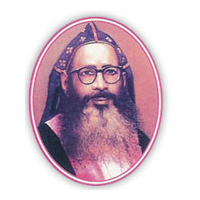
Rt. Rev. Mathews Mar Athenasius Episcopa (1937 - 1973)
Mar Athenasius Episcopa was consecrated in 1937 with Mar Timotheous (later Juhanon Mar Thoma Metropolitan). He was noted for his deep personal dedication to Jesus Christ and his zeal for the spread of the Gospel, continuity in the Evangelical tradition of the Mar Thoma Church. He was full of energy and sacrificial spirit. At the age of 21 he left home to go to the North Travancore which was an underdeveloped area. It had been selected as a mission field of the Evangelistic Association. Soon he started a school at Keezhillam as a means to reach out and help the people living in that area, with a group of fellow workers, having only their faith in God as their resource. They worked hard and opened the way for education for hundreds of children in poor families. In those days education wasn’t free and many of the people couldn’t afford schooling. By giving concessions in fees to such students, they were encouraged to study and the money for their education was taken from the meagre salary of the teachers who were gracious enough to accept it as a way of serving the Lord. Gradually education began to spread in those areas and people began to see the truth of the Gospel in the lives of their teachers. Many from that area like Very Rev. A A Pylee, who was one of the Vicars General of the Church stands testimony to this fact. The school at Keezhillam developed to be a High School with a well- managed boarding home. Thereafter Rev. C T Mathew (Mar Athanasius) moved to Perumbavoor seeing the need of that area. He was supported by a small group of friends including Mr.A. Cherian who later became a judge. A High School was incepted where teachers worked on fellowship basis, on the pattern of the Union Christian College, Alwaye. A group of dedicated teachers under the leadership of Rev. C T Mathew, the headmaster, became the nucleus of an Ashram. The school was known as the Ashram High School. The teachers shared everything in common and lived a life of fellowship as the first century Christians, devoting all their time to the welfare of the students. The boarding home and the school became highly reputed across the state. It was from there that Rev. C T Mathew was called to be a Bishop of the Mar Thoma Church. His deep devotion and sacrificial life and the spirit of fellowship were the special characteristics of his service as Bishop.
The spirit of adventure and trust in God made him a master builder of the Church. Wherever he saw the need, he ventured into action even when no resources were in sight. Undeveloped areas in Malabar became his concern as the Diocesan Bishop. He went to un-accessed areas and helped small congregation of people who had migrated from Central Travancore, seeking opportunity to make a living. They were helped to settle down and developed as on small communities in a spirit of co-operation. Nilambur and Chungathara and other places up to Gudalloor were all reached by him and the small congregations were encouraged and supported in various ways. Later when he was in charge of the diocese in Central Travancore, he concentrated his efforts in developing the congregations among the new settlers in Chittar, Seethathode, Angamoozhy and other palaces which were very difficult to reach in those days. He opened dispensaries and clinics and schools while also caring for their spiritual needs. The Olivet Aramana at Chengannur, the Retreat Centre at Maramon and the Kalalayam at Ayroor came into being as a result of his enterprising spirit. It was owing to his farsight that the Charal Mount which has since become a favourite camp sight was bought and made available for the church. When the Evangelistic work of the Church expanded he was the first Missionary Bishop of the Church, travelling all over India, visiting the scattered congregations and encouraging the Ashrams. He was present in many international Evangelistic conferences in Tokyo and other places. He was the first Bishop of the Mar Thoma Church to visit our congregations in Malaysia and Singapore. Even though suffering from diabetes for many years, nothing could stop him from all out endeavour in the cause of the spread of the Gospel. He followed closely on the line of Abraham Mar Thoma and surpassed him in developmental activities of the Church. After a short period, he succumbed to his illness and was called to his heavenly reward in 1973 at the age of 73.
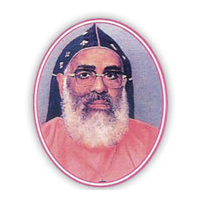
Rt. Rev. Thomas Mar Athanasius Suffragan Metropolitan (1953 - 1984)
He was born in 1914 in the Panampunna family at Kottayam and was a deep scholar who continued his reading and studies to the end of his days. He was known for his deep devotion and great ability to build up the Church. He had his earlier education at the C.M.S College Kottayam and later as at Trivandrum where he took Post Graduation in History from the Arts College. He had his Theological training at the Bishop’s College Calcutta and at Oxford University, England. He taught in the Mar Thoma Theological Seminary and the M.T High School Kottayam. He was ordained Deacon of the Church in 1944 and Kasseessa in 1946 while he continued his teaching at the Mar Thoma Theological Seminary. On his consecration as Bishop in 1953 with the other two Bishops, he was first in charge of the Diocese in Kerala, South of Adoor, called the Southern Diocese at that time. After six years in this capacity, he functioned as Missionary Bishop from 1959 to 1963. Since then he has been in charge of the Northern Diocese with head quarters first at Kottayam, and later at Manganam. He attended the first Assembly of the World Council of Churches at Amsterdam in 1948, and also the Assembly at New Delhi in 1961. He was a member of the Faith and Order Commission of the World Council of Churches since 1961. Thus he made significant contributions to the cause of ecumenism. He has attended many other international conferences in the Churches and was a delegate to the Melbourne Conference where he had made a distinct contribution as a leader of Bible Study. He also attended the sessions of the second Vatican Council on special invitation. He was designated as Suffragan Metroploitan in May 1978 together with Philipose Mar Chrysostom.
He has been President of various organizations of the Church, such as the Evangelistic Assocaiation, Sunday School Samajam, Sevika Sangham and Yuvajana Sakhyam on different occasions. He guided the evangelistic activities of the whole church for many years. As a builder, he opened up many centers for the development of the church, raising funds by personal appeals. Thus were established the Diocesan Headquarters at Adoor, Maganam and Kunnamkulam. The Church Center at Chungathara, the Convention Speakers Sites in the Retreat Centre at Maramon, and the St. Augustine Study Centre, Manganam, Kottayam with the view that the clergy and Laity should take time off to stay at the center and read the latest books on theology and related subjects. By his personal efforts, he built a library of over 6000 valuable books. The Mar Thoma College for Women at Perumbavoor was established under his inspiring leadership and patronage. He gave leadership to the Parishes in the Ranny area to establish a center for the church. He was Cahirman of different colleges of the Church and of the Vaidika Seminary for many years and gave valuable contributions to their development. The last months of his life were spent in organizing and developing the Parishes in North America. His sudden demise on November 27, 1984 was a severe shock to the whole Church and to the ecumenical world. His loss was irreparable. He was awarded a Doctorate by the Serampore University considering his meritorious services to the Church in India, and towards ecumenical cause. At the time of his consecration as Bishop a controversy was started by Mr. K N Daniel who questioned his loyalty to reformation principles. After closely observing his life and work for some years, Mr. Daniel himself admitted that his fears were unjustified and he had full confidence in Mar Athanasius’s personal commitment to Jesus Christ, his evangelical zeal and loyalty to the Church.
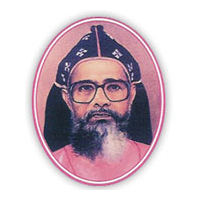
Easow Mar Timotheos Episcopa (1975 - 1988)
His Zeal for mission made him dedicate his life for missionary work. He worked as a member of the Christa Panthi Ashram, Sihora for 21 years from the age of 20. He had his theological education at the Leonard Theological College, Jabalpur and later at St. Augustine College, Canterbury, UK. His life of prayer and deep spiritual experience are his special characteristics. He is deeply interested in rural development activities and has been on two occasions to Japan for obtaining training in this area. He was consecrated Bishop along with Joseph Mar Irenaeus in February 1975 and was given charge of the Kunnamkulam-Malabar Diocese where he worked strenously for the uplift of the parishes in those undeveloped areas of Malabar. He has been Chairman of the Governing Board of the Mar Thoma College Chungathara, which was started out of his personal interest in the development of that region. He has been Chairman of the Committee directing the Wandoor project for the integrated development of five Panchayats in that area. Being also in charge of the Parishes in the Arabian Gulf area, he raised funds from there for the development of Malabar area. On the rearrangement of the Dioceses, after the demise of Thomas Mar Athanasius Suffragan Metropolitan he took charge of the Adoor Mavelikara Diocese. He helped many to find new life in Jesus Christ. He was very much in demand as a convention speaker and for leading retreats and conferences. His sudden demise at Port Blair, Andamans on 11th April 1988 was a great loss to the Church.
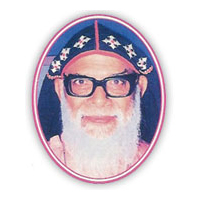
His Grace the Most Rev Dr Alexander Mar Thoma Valia Metropolitan (1953 - 2000)
Born in 1913 he was the son of Rev. M C George, Kuriannor, a devout Minister of the Church, who passed away in 1923. After his graduation and teacher’s training, he taught in the C M S High School, Kottayam for 12 years. He resigned his teaching job and studied Theology at the United Theological College in Bangalore. There after he secured S T M Degree from the Union Theological Seminary, New York and Ph.D on Bhagavad Gita from Kennedy School of Mission of the Hartford Seminary Foundation. He had the opportunity to travel extensively in the European countries and after returning from the States, he was in charge of the Managnam Parish for a year. Thereafter he worked as the first Principal of Mar Thoma College, Tiruvalla. In 1953 he was consecrated as Bishop as Alexander Mar Theophilus, together with Thomas Mar Athanasius and Philipose Mar Chrysostom. A participant of the Assemblies of World Council of Churches representing the Mar Thoma Church at Evanston in 1954, Nairobi in 1975, and Vancouver in 1983, he worked as Missionary Bishop for many years, which involved extensive travel in India and abroad. He was president of the Bible Society of India for nearly 10 years and was also one of the Vice-Presidents of the United Bible Societies. He has also attended the Central Committee of the W.C.C on different occasions. He attended the Lambeth Conference in 1980 and the Anglican Consultative Council held at Nigeria in 1984. In 1973 he was designated Suffragan Metropolitan and as Metropolitan in the year 1976 after the demise of Juhanon Mar Thoma Metropolitan. Together with the responsibility as Metropolitan he was in charge of the Niranam-Maramon Diocese with 82 Parishes. He used to spend several weeks in a year with the youth giving leadership in camps and conferences and challenging them to personal commitment towards Jesus Christ. He took special interest in the developmental activities and the social concerns of the church, its educational institutions, its missionary and evangelistic outreach, its witness and ecumenical concerns. In 1999 Alexander Marthoma was designated Alexander Marthoma Valia Metropolitan, as the first Marthoma Metropolitan to be made Valia Metropolitan. He passed away in 2000.
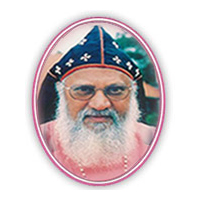
Rt. Rev. Dr. Zacharias Mar Theophilus Suffragan Metropolitan (1980 - 2015)
Dr. Zacharias Mar Theophilus Suffragan Metropolitan belongs to the Mattackal Venparampil family of the Niranama Jerusalem Mar Thoma Parish. Born on 29th August 1938 as the son of Sri V.K. Oommen and Smt. Mariamma Oommen having a brother and three sisters. Thirumeni was a personality searching for new path for spiritual activities by a perfect combination of knowledge and experience amidst contrasts and diversities. Appealing personality, warmth of friendly relations and an affinity for new ideas in theological thinking make Thirumeni different from others and at the sametime make him very dear to all without any difference in age.
Completing school education from Niranam St. Mary’s High School Oommen Koruth got BSc., B.Ed degrees studying in NSS College, Changanacherry, UC College, Alwaye and Titus II Teachers Training College Thiruvalla. Starting his career as a teacher Oommen Koruth worked in Settlement School, Alwaye in 1959 and in Ashramam High School, Perumbavoor in 1961. Accepting the divine call for full time ministry he joined the Leonard Theological College, Jabalpur and got B.D. Degree. He was ordained Semmas in May 1966 and Kasessa in July. Joining as teacher in Ashramam High School there after he served the nearby parishes as well. In 1969 he took charge of St. Thomas School, Mysore. Procuring land for the school a new building was constructed and the school was shifted there from the rented building and the school worked well there. He served as vicar of Mysore parish also. He worked as teacher and boarding superintendent in St. Thomas Residential School, Thriuvananthapuram serving nearby parishes as well.
Rev. Oommen Koruth joined Princeton Theological Seminary for higher studies. He got THM degree from Princeton and Doctorate from Boston University. He was able to lead in the formation of NewYork, Boston and Philadelphia parishes. On his return to India after higher studies he served in the Bombay Santacruz and Kozhencherry Parishes.
The Sabha Prathinidhi Mandalam at its meeting in Thiruvalla on 8th February 1980 selected Rev. Oommen Koruth as an Episcopa. He was consecrated as Ramban on 26thApril 1980 at St. Thomas Church, Kozhencherry and as Zacharias Mar Theophilus Epsicopa on 1st May at the Madbaha in the SCS Compound Thiruvalla. He was given charge of Adoor – Mavelikkara Diocese. He was President of Mar Thoma Yuvajana Sakhyam also during this period. In addition he took charge of Kottayam – Ranni Diocese from 1984 and Kunnamkulam – Malabar Diocese from 1987.
He served as head of North America – Europe Diocese spreading all over North America, Canada UK and Germany from 1993 to 2001 staying in New York. Under his leadership this Diocese achieved tremendous development. In 1997 the Mar Thoma Church became a member of National Council of Churches of Christ in USA. Mar Thoma congregations were formed in Germany and Switzerland. Arrangements were made for shepherding the Diaspora community in Africa, Australia and New Zealand. He worked as head of Chennai-Bangalore Diocese from 2001 to 2005. He gave monumental leadership during this period for mission activities in Karnataka, Andhra and Tamil Nadu states. During this period he was President of Mar Thoma Suvisesha Sevika Sanghom. In 2005 he took charge of Chengannur – Mavelikkara Diocese. In order to broaden the activities of Narasapuram, the mission field of the Diocese land was bought and school and clinic were started. Karuthal – Cancer care and Counselling Centre was started. He served as president of Mar Thoma Voluntary Evangelists Association. As President of the Committee to build homes for the homeless as the Navathy Project of Philipose Mar Chrysostom Mar Thoma Metropolitan he gave leadership to build 2059 houses.
Thirumeni’s contributions in the ecumenical field are remarkable. Along with giving readership in WCC, CCA he served as President of World Vision India, Bangalore ECC, National Missionary Society, Bible Society (Kerala Auxiliary) and as secretary of Nilackal Ecumenical Trust. He worked as member of Christian Council of Asia from 1982 to 1986. He represented the Church in the General Assembly of the work Mission and Evangelism Conference held in 1989 at Santigo. He was elected to the WCC Central Committee and Executive Committee held in 1991 at Canberra. He attended as the representative of the Church in the 1998 Lambeth Conference. He led the delegation of the Church in the General Assembly of WCC held at Harare in 1998. He was elected a second time as member of WCC Central Committee and Executive Committee. He was Ecumenical Advisor of the Church’s Delegation in the WCC General Assembly of 2006 held in Porto Alerge Brazil. Attending various Ecumenical religious study conferences in many parts of the world he has delivered lectures and presented papers.
Asha Nikethan (Mochana), Kottayam, Women’s Hostel, Pathanamthitta, Asha Bhavan Pidavoor, Sinai Centre New York, Santhigiri Ashram, Alwaye are examples of Thirumeni’s vision of future.
After the way back to Kerala after the Christmas Services in Muscat, Tirumeni suffered a cerebral haemorrhage in the flight and was admitted to a hospital in Kerala. Tirumeni was taken into eternal rest on December 27th, 2015 and the funeral service was held at December 29, 2015 at Tiruvalla.
Along with guiding the Dioceses, Thirumeni challenged the society to a new understanding by sharing visionary and theological insights with the help of outstanding oratory. He shines as Theologian, Ecumenical leader along with propagating and implementing new vision. Through out his life, he find answers to the complicated problems faced by the modern world with the help of divine guidance along with finding a new meaning for vision and theology with the help of extra ordinary insight.
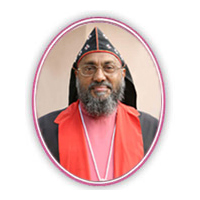
Rt. Rev. Geevarghese Mar Athanasius Suffragan Metropolitan (1989 - 2018)
Born on 26th April 1944 as the son of Late Sri. C.I. Idicula and Late Smt. Achiyamma of Nedumpram Christos Mar Thoma Parish Chirayilkandathil C.I. George completed High School education from TMT High School Neerattupuram. After obtaining BSc Degree from Mar Thoma College, Thiruvalla he was called upon to serve the Church as a priest and got BD Degree from Leonard Theological College, Jabalpur in 1969. He was ordained Semmash on 3rd May 1969 and Kassesa on 14th June 1969.
He served thereafter Palakkad, Olavakkod, Karimba, Nelliyambathy, Attappadi, Kozhinjampara, Kuzhalmannam, Mumbai, Dadar, Toronto, Venmoney Sehion, Kottayam Jerusalem, Madras Chetpet, Edayaranmula, Laka Senthom, Kurichimuttom and various other Parishes illustriously. While in Canada he did higher studies in Wycliffe College, Toronto (1975-76). He was selected as Bishop while serving in Edayaranmula parish. He was consecrated as Ramban on 4th November 1989 at the Kottarakkara Mar Thoma Convention ground along with Rev. Dr. George Jacob (Geevarghese Mar Theodosius Episcopa and Rev. Euyakim I. Cheeran (Euyakim Mar Coorilos Episcopa) and as Episcopa with the name Geevarghese Mar Athanasius on 9th December 1989 at Thiruvalla SCS ground. He was assigned to be the head of Mumbai – Delhi Diocese. He served as head of Kottayam-Kochi Diocese from 1993 November to September 2001 and from 2001 October continues to head Ranni – Nilackal Diocese. In 2015 October 2nd, Tirumeni was installed as the Suffragan Metropolitan of the Church.
Thirumeni gave admirable leadership to collect funds and complete construction of Mathews Mar Athanasius Memorial Mar Thoma Centre at the Mumbai – Delhi Diocese Head Quarters. He laid the foundation stone of Mumbai Diocese Headquarters. Thirumeni took special care for the construction of Vazhakulam Greater Cochin Centre in Kottayam-Kochi Diocese. He was able to procure sixteen acres of land near Kamshet, Pune for the construction of Mumbai Western Zone Youth Centre. Special care was taken to uplift the believers in Highrange. The service of Evangelists was assured in all small parishes. He gave leadership to buy 15 acres of land in Karukachal for the extension of Kottayam Vaideeka Seminary. He bought land in Ponjassery and started an Industrial Training Institute there to ensure the employment opportunities of the tribal children in the Girideepthi tribal hostel of Thrikkakkara. He made the Munnar Parish to provide 60 cents of land for Kottayam-Kochi Diocese for a Retreat Centre there and got the plan ready and laid the foundation stone.
Thirumeni was able to get new buildings constructed for the Pathanamthitta Ladies Hostel owned by the Ranni-Nilackal Diocese Sevika Sanghom, Mekkozhur Deepam, Balika Bhavan and Kripa Bhavan. He gave leadership to start Pratheeksha Bhavan Old age Home at Mylapra Cheenkalthadam. Ten families without land or home were given homes by the Sharjah parish Silver Jubilee Project in Cooperation with Ranni-Nilackal Diocese.
Thirumeni was incharge of various organizations and projects of the Church. Chairman of Titus II Teachers Training College Governing Board and Vaidika Seminary, President of Suvisesha Sevika Sanghom, Sunday School Samajam, Vaidika Selection Committee, Sabha Directory Committee, Vaidika Conference Committee, Manager Perumbavoor Women’s College, President National Missionary Society (1990-93) these are some of the posts held by Thirumeni. He was able to establish an MBA College in Perumbavoor namely Mar Thoma College of Management and Technology when he was President of Suvisesha Prasanga Sanghom. He gave leadership to renovate and reconstruct Kalliseri Kadavil Malika, the birth place of Mar Thoma Evangelistic Association. He was Chairman of Development Department, Sabha Tharaka, Service Commission, Cherukole ITC, Edakulam Teacher’s Training College, Sabha Steering Committee and Manager of Thiruvalla Mar Thoma College and Kozhencherry St. Thomas College.
Thirumeni’s discourses are the outcome of mature thought, depth of knowledge and wide reading. He is a good friend of Theological books and literary books and periodicals. All his speeches are thought provoking and appealing to all. As a refuge to everyone in distress and sorrow he has a special ability to win the heart of all. He is always able to pass on to his audience the depth of Biblical thoughts in a natural and poetical style. He is blessed with a rare ability to lead the audience to the shores of total submission lifting them on wings of fancy with the help of poetic description. His mature and creative leadership provides new avenues as for service as a shepherd.
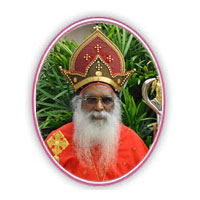
His Grace the Most Rev Dr Joseph Mar Thoma Metropolitan
Parents - Maramon Palakkunnathu Kadone Lukose and Puthoor Mariamma
Born on - 1931, June 27
Ordained as Deacon - 1957, June 29
Ordained as Kassissa - 1957, October 18
Ordained as Ramban - 1975, January 11
Consecrated as Episcopa - 1975, February 8
Designated as Suffragan Metropolitan - 1999, March 15
Installed as Metropolitan - 2007, October 2
Passed Away - 2020, October
Dr. Joseph Mar Thoma Metropolitan was born in the Maramon Palakunnath family which was the ancestral home of the father of the reformation of the Malankara Church, Abraham Malpan and the first four Metropolitans of the Mar Thoma Church. He was born on 27th June 1931 as the son of Puthoor Mariamma and Lukochen who was the son of Palakunnath Kadon Thomachen, elder brother of Titus II, Mar Thoma Metropolitan. The childhood was formulated in the context of a very noble tradition. After school education in Kozhencherry St. Thomas High School he graduated from Union Christian College Alwaye. Having dedicated himself to serving the Church he passed Bachelor of Divinity degree from United Theological College, Bangalore. He was ordained Deacon on 29th June 1957 and Kasessa on 18th October 1957.
He served as Vicar of Ranni, Kozhikode, Kundara, Madras and Thiruvananthapuram Parishes. As the Church deputed him, he served as the travelling secretary of the Mar Thoma Evangelistic Association for a few years during a crisis in the organization. He got Master of Divinity and Master of Sacred Theology degrees after higher education in Virginia Seminary, Oxford and Canterbury St. Augustin Colleges.
The Sabha Prathinidhi Mandalam in its meeting in November 1974 selected him as Episcopa. He was ordained Ramban along with Rev. V.T. Koshy at Trissur Mar Thoma Church on 11th January 1975. Joseph Ramban was ordained Joseph Mar Iraneus Episcopa on 8th February 1975 at the temporary Madbaha in the courtyard of SC Seminary, Thiruvalla. He was given charge of Kollam – Kottarakara Diocese. He did his utmost for the overall development of the Diocese. At the same time he gave good leadership as the President of Sunday School Samajam, President of Yuvajana Sakhyam, Chairman Development Committee and President of Kerala Christian Council. During the second half of the seventies as the head of Sunday School and Yuvajana Sakhyam he was able to introduce VBS and cassette ministry respectively. Next he was in charge of outside Kerala Parishes and prepared the path for the development of the church in those regions. He was instrumental in acquiring property in Delhi, Bombay and Madras to establish Church centres there. He gave leadership to procure land from the Government to establish churches outside Kerala in Delhi, Hyderabad and Vishakhapatanam. Later he was appointed as the head of the Thiruvananthapuram – Kollam Diocese. He took special care to start Anchal ITC, student centres at Sasthamkotta and Pandalam and to register South Travancore Agency for Rural Development (STARD) for the developmental activities of South Travancore.
In 1988 he took charge of Thiruvananthapuram – Kollam Diocese again. In consequence of the unexpected demise of Easow Mar Timotheos Episcopa he had to take charge of Bombay – Delhi Diocese also along with the responsibilities of the Diocese for some years. He organized the starting of Ayoor Mar Thoma College of Science and Technology after procuring land near MC Road for the Diocese. He was the first Manager. He played a pivotal role in the development activities of Thiruvananthapuram St. Thomas Residential School.
A student centre was started in Nagarcoil. Thiruvananthapuram guidance and counselling centre was completed after settling the liabilities. The liabilities of the Women’s Centre started in Neyyattinkara also was settled. He concentrated in the completion of the construction work of the Auditorium in Kottarakara, the construction of the wards of the Mandiram and the building construction of Hospice. When the Sevika Sanghom handed over the Punalur Boys’ Home it was taker over. As president of the Suvisesha Sevika Sanghom for four years he gave leadership of its activities.
As Vice-President and President of the National Council of Churches he gave good leadership. He led the joint protest marches at Thiruvananthapuram and Delhi against the denial of justice to Dalit Christians on the basis of religious faith. He served as the Board member, Vice-President and President of Christian Auxiliary for Social Action. He provided good leadership to provide relief to earth quake, flood victims and rehabilitation activities in Lathur of Maharashtra, Gujarat, Andhra Pradesh, Orissa, West Bengal and during Tsunami in South India. He served also as the Trustee Board member of Ecumenical Church Loan Fund. He was the Executive Committee member and senior member of the presidium of Christian Conference of Asia(CCA). He worked as the Co-chairman of the Joint Committee of CCA and Asian Bishops Conference. During this period he served as member of the Peace Mission in the context of the tension in Nagaland, Manipur and East Timor. He attended the Lambeth Conference in England and the Anglican Consultant Committees held in South Africa and Hong Kong. He took part in the World Council of Churches (WCC) Assemblies in Canberra, Harare, Porto Aligrae and Busan in Korea. He attended and spoke as special invitee in the Conference of world religions held at UN. General Assembly Hall organized by the UN General Secretary. The Mayors of California and New York Yonkers in the US have honoured him by presenting Awards of Honor.
He has worked as the President of the Governing Council of St. Thomas College, Kozhencherry, Christian College, Chengannur, Mar Thoma College for Women, MBA College, School Governing Board and Mar Thoma Teachers Training College, Perumbavoor. He was in-charge of Adoor- Mavelikkara Diocese from August 1997. He took the initiative to start nursing schools in Kattanam and Hoskote. His service to organise the Maramon Convention officially and unofficially in the past and at present is commendable. As a man of unique ability to lead Thirumeni pays special attention to the construction activities of the Church. He worked as Chairman of the Sabha Auditorium Fund Committee and gave leadership to collect 84 lakhs. As Chairman he directed the re-publishing of Mar Thoma Vaideeka Directory. In recognition of the distinguished leadership in various fields the Virginia Seminary of America honoured him with a Doctorate. Moreover a second doctorate was bestowed on him by the Serampore University on 10th February 2007 taking into account Thirumeni’s activities in the Church and society. A third Doctorate to honour him was awarded to him by SHIATS (Sam Higginbottom Institute of Agriculture, Technology and Sciences) Deemed University (Formerly Allahabad Agriculture University) in recognition of his total contribution in the social field.
He was consecrated as the Supreme Head of the Malankara Mar Thoma Syrian Church on 2nd October 2007. In the words of Dr. Philipose Mar Chrysostom Mar Thoma Valiya Metropolitan, Joseph Mar Thoma Metropolitan is noble in heredity, rich in self acquired abilities, well versed in relations, able and talented in construction work and blessed in leadership.
In connection with the 80th Birthday of Metropolitan, Church inaugurated Snehakaram project for the critically ill Cancer\Kidney and Heart Patients irrespective of the Cast and Creed. Every year the Church is disbursing about 50 lakhs rupees for the same.
On 2020 October 18, Tirumeni was taken into Eternal Rest at 2:38 AM at Believers Church Medical College Hospital, Tiruvalla. The Funeral Service was held at Mar Thoma Church Head Quarters, Tiruvalla on 19-10-2020.
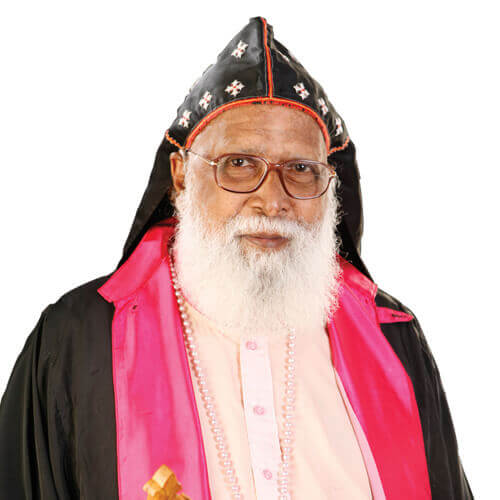
His Grace the Most Rev Dr Philipose Mar Chrysostom Mar Thoma Valia Metropolitan
Date of Birth - April 27, 1918
Ordained as Deacon - January 1, 1944
Ordained as Kasseessa - June 3, 1944
Ordained as Ramban - May 20, 1953
Consecrated as Episcopa - May 23, 1953
Designated as Suffragan Metropolitan - May, 1978
Designated as Officiating Metropolitan - March 15, 1999
Installed as Metropolitan - October 23, 1999
Designated as Valia Metropolitan - October 2, 2007
Passed Away - May 5, 2021
His Grace Philipose Mar Chrysostom Mar Thoma Valiya Metropolitan, an outstanding personality remarkable for brilliant ideas and inborn sense of humour, was born in Adangappurath Kalamannil, a family of priestly tradition. He was born as the son of Very Rev. K.E. Oommen Kassessa, Vicar General of the Mar Thoma Church and Sosamma of Nadukkeveetil family, Karthikappally on 27th April 1918. Philip Oommen was known as Dharmistan at home. His character fully justified that name. Right from childhood he accepted as life’s principle and fully supported justice and morality. After school education in Maramon, Kozhencherry and Eraviperoor, he obtained BA Degree from Union Christian (UC) College, Alwaye.
His commitment to spread the gospel of Jesus Christ made young Philip Oommen involve in missionary work in Ankola, Karnataka. He ventured to accept this as a challenge when Missionary work in Karnataka was in a crisis. After working there from 1940 to 1942 he started Theological studies in United Theological College, Bangalore. He was ordained as Deacon on 1st January 1944 and as Kasessa on 3rd June. Along with theological studies he fulfilled the duty of leading the Bangalore Parish. After participating in the activities of Ankola Ashram for some time he served as Vicar of Kottarakkara, Mylom, Pattamala, Manganam St. Peters and Thiruvananthapuram parishes.
Rev. Philip Oommen along with Rev. Dr. M.G. Chandy and Rev. P. Thomas got ordained as Ramban on 20th May, 1953 and as Episcopa on 23rd May with the name Philipose Mar Chrysostom Episcopa. Later history proved that he richly deserved the name of St. Chrysostom of the golden tongue. He joined St. Augustine’s College, Canterbury, England to pursue further theological studies. On his return in 1954 he was given responsibility of Kottayam-Kunnamkulam Diocese and the Mar Thoma Vaideeka Seminary. During this period he represented the Mar Thoma Church in the Evanston Conference of the World Council of Churches.
When Thomas Mar Athanasius Episcopa completed his tenure as the Missionary Bishop, Mar Chrysostom took up the responsibility with his office and residence at Olivet Aramana, Chengannur. He played a pivotal role during this period to widen the mission activities of the Church by visiting the parishes, Ashrams and mission centres outside Kerala there by giving fellowship and spiritual leadership to the workers there. He paid special attention to the spiritual nourishment of youths as well.
On completion of service as the missionary Bishop he served as the Diocesan Episcopa of Adoor- Kottarakkara. During this period he was the President of Sevika Sanghom, Sunday School Samajam and Kerala Christian Council also. He was the President of Christian Auxillary for Social Action as well. From 1975 once again he became missionary Bishop and was head of Thiruvananthapuram – Kollam, Adoor – Mavelikkara, Ranni – Nilackal and Chengannur – Thumpamon Dioceses thereafter.
Thirumeni’s special concern for socially and economically backward parishes is note worthy. He formulated and implemented projects to improve the social, economic and cultural condition of the backward parishes of South Travancore. He believed that the way to the creator was through the creations of God. He was exalted to the positions of Suffragan Metropolitan in May 1978, Officiating Metropolitan on 15th March 1999 and Metropolitan on 23rd October 1999. As Metropolitan he led the Church and also the Niranam – Maramon Diocese.
The basic quality of Mar Chrysostom Metropolitan is a pleasant attitude. His main medium of communication is pleasant talk containing humorous words and action. Such humorous conversation and speeches spread a pleasant feeling around. The humour of Thirumeni is very famous. Many books and documentaries have been published containing his humorous speeches and talks. Some of them are “Mar Chrysostom makes us laugh and we think”, “Listen O Heavens – hear O Earth”, “100 platforms with Mar Chrysostom”, “He summons us”, “Chrysostom Metropolitan the Prophet of Divine Universe”, “The Christian Mission in Market Community”, “Mission in the Market Place”, “Sketches and Speeches”, “Mar Chrysostom – an Assessment – Documentary”, “Laughter and thought –Documentary”.
Considering the contributions of Thirumeni to Theology the Serampore University honoured him by awarding a Doctorate Degree.
He attended the 2nd Vatican Council summoned by Pope John 23rd as Official observer of the Mar Thoma Church. He always found time to get in touch with individuals in various parishes of Dioceses. He was very keen to conduct meetings of clergy very meaningfully.
Chrysostom Metropolitan is unparalleled with his touching style of speech full of humorous statements and broad minded love of humanity. He is a devout idealist. Mar Chrysostom is a talented steersman able to guide the Church boat correctly to the destination as the times demand knowing the pulse of the period. He is endowed with an extra ordinary and indescribable talent to mingle with the youth to enter into a dialogue with them imbibing modern views. His presence enables each and everyone to overcome any highly complicated situation with the help of his inborn sense of humour. Thirumeni is also able to remain youthful in thought, vision and words. The Mar Thoma Church decided to build houses for 1,500 homeless people by imbibing his vision on the occasion of his 90th birthday. As His Grace Philipose Mar Chrysostom Valiya Metropolitan is busy in action forgetting his advanced age, his spiritual leadership and sense of direction is a great blessing for the Church and society.
He is now living in Maramon Jubilee Home after voluntarily retiring from administrative responsibilities on 1st October 2007. But he is leading a very active life style even now. He has given a new meaning to retirement by his present way of life. He visits many people and many people visit him in search of the noble experience of being in the presence of a sublime personality. His presence is required not just in Church gatherings. Various religious and cultural organizations demand his advice and blessings. His magnetic personality inspires each and every one who gets in touch with him.
In connection with the hundredth Birthday, the Church decided to construct 100 homes for the homeless and also implemented a Project among Transgenders, to uphold and respect their identity. This is a unique and novel venture by any Christian Churches in Kerala.
On the eve of Republic day in 2018, considering the services to the society, the nation decided to award Padma Bhushan to Tirumeni and on 20th March 2018, Tirumeni received the award from the President of India Sri. Ram Nath Kovind.
Blessy, the famous filim director made a documentary on the basis of the life and vision of Tirumeni namely 100 years of Mar Chrysostom. , The documentary delves into the life, thoughts and ideals of Philipose Mar Chrysostom Mar Thoma Valiya Metropolitan, which received the Guinness Award in the category of longest documentary.